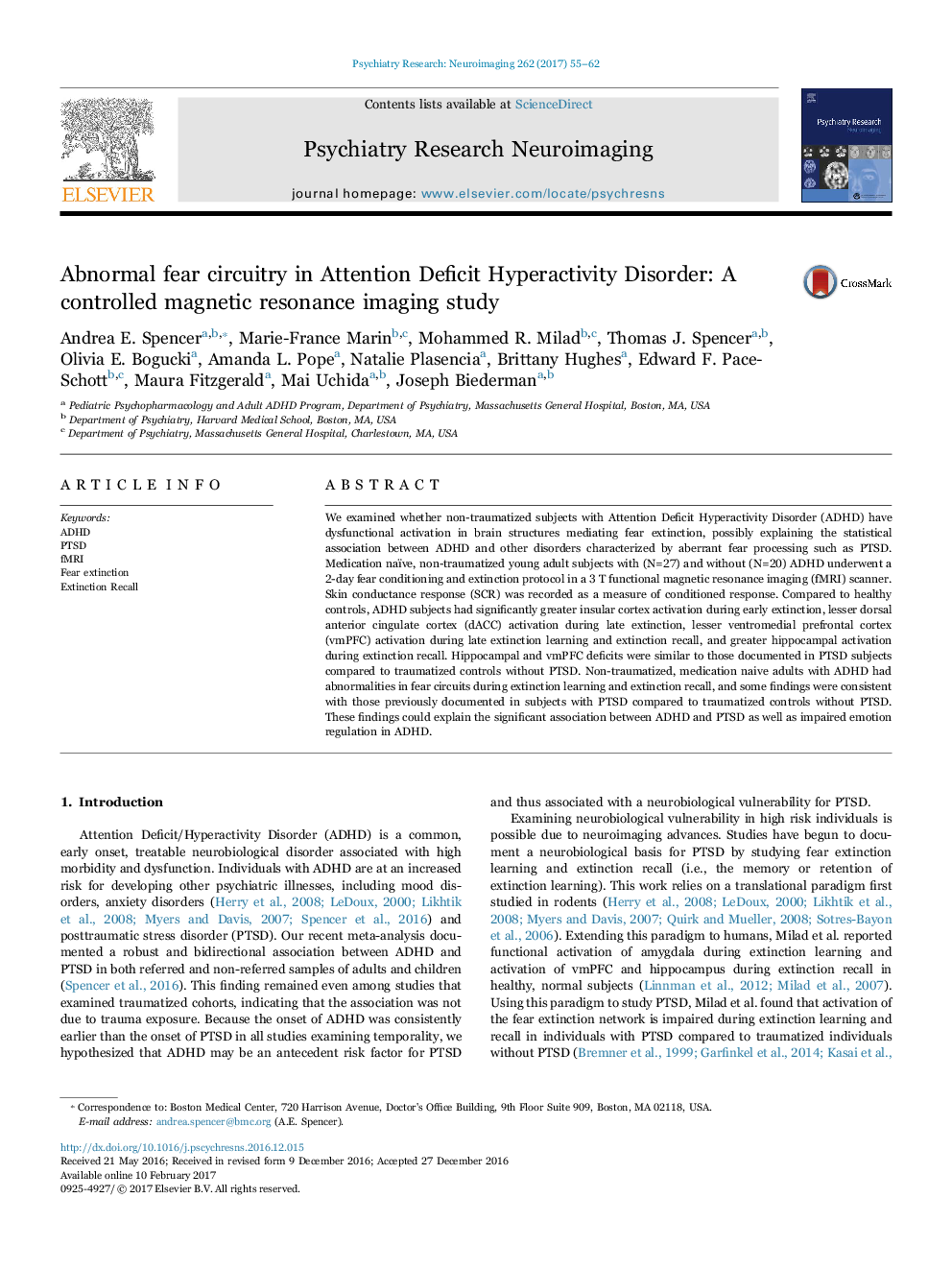ترجمه فارسی عنوان مقاله
مدار ترس غیر طبیعی در اختلال بیش فعالی کمبود توجه: یک مطالعه تصویربرداری رزونانس مغناطیسی کنترل شده
عنوان انگلیسی
Abnormal fear circuitry in Attention Deficit Hyperactivity Disorder: A controlled magnetic resonance imaging study
| کد مقاله | سال انتشار | تعداد صفحات مقاله انگلیسی |
|---|---|---|
| 123812 | 2017 | 8 صفحه PDF |
منبع

Publisher : Elsevier - Science Direct (الزویر - ساینس دایرکت)
Journal : Psychiatry Research: Neuroimaging, Volume 262, 30 April 2017, Pages 55-62

